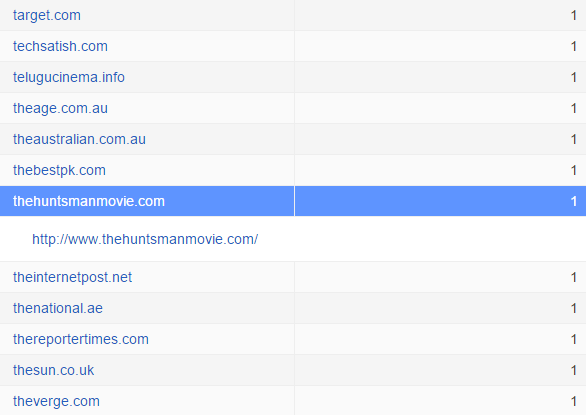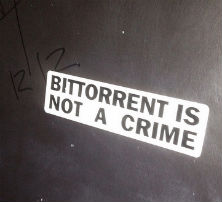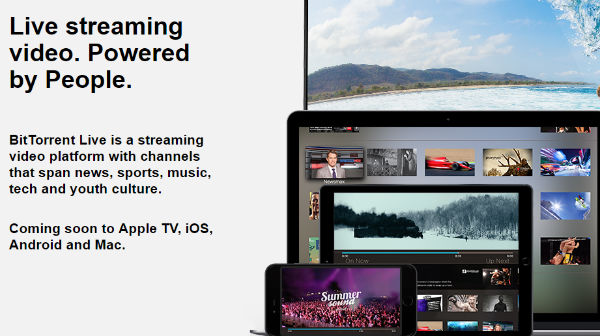Anti-Piracy Group Wants to Take Down ‘The Internet’
samedi 4 juin 2016 à 21:23 In an effort to combat piracy, copyright holders report millions of infringing links to Google on a daily basis.
In an effort to combat piracy, copyright holders report millions of infringing links to Google on a daily basis.
Due to the high number of often automated notices and the fact that copyright holders don’t always check the validity of all requests, mistakes are a common occurrence.
An occasional mishap is understandable, of course, but this week we stumbled upon one of the worst series of takedown notices we have ever seen.
Over the course of a few days reporting organization Copyright UNIVERSAL asked Google to remove thousands of links from its search engine. In their listing we do indeed see some infringing URLs, but it’s the legal content that really stands out.
In fact, it is safe to say that no website is safe for the overzealous anti-piracy group.
Over the past week Copyright UNIVERSAL has asked Google to remove 4,224 URLs including various high profile sites. While we don’t have room to highlight all ‘mistakes,’ we’ve made a selection of some of the most outrageous errors.
Let’s start off with the MPAA, a fellow anti-piracy group which has called on Google to make sure that reported URLs remain offline. According to a recent notice from Copyright UNIVERSAL, their ratings page is clearly infringing.

The same is true for legal offerings from movie stores and streaming services, including Netflix, Amazon and Apple’s iTunes.



According to the notices, Google’s very own Play store is also copyright infringing.

In fact, even Hulu’s original series are not safe from the overactive anti-piracy group’s recent takedown spree.

But that’s just the beginning. Various Internet providers including Comcast, Verizon and Cox also offer entertainment online. This is not permitted according to Copyright UNIVERSAL which is targeting the respective sites in various takedown notices.



Then there are offline film broadcasting outlets, commonly known as movie theaters. These generally have a good relationship with copyright holders, but that doesn’t mean they can stay online.
The Copyright UNIVERSAL notices target several cinemas including the homepages of AMC Theaters and Vox Cinemas, as shown below.


The same is true for film rating sites such as Rotten Tomatoes and Metacritic, which are both targeted in several requests.


Turning it up a notch, the anti-piracy group is also cracking down on sports leagues, as both the NBA and NFL sites are targeted.


And what about the official movie homepage for The Huntsman: Winter’s War, tucked in between several news articles and other legitimate sites such as the Verge, The Age, The Australian and The Sun.
The list goes on and on and on….

After keeping a close eye on DMCA takedown mistakes over the past several years, these are by far the worst. Keep in mind that the above is just a small selection of all the inaccuracies, which can be found in full here.
Unfortunately it is not clear on whose authority Universal COPYRIGHT is acting. The sloppy anti-piracy outfit reportedly operates from India but that’s pretty much all we know at this point.
TorrentFreak reached out to Google, who said they would look into the matter, but we haven’t heard back since.
The good news is that thanks to Google’s sharp eye none of the inaccurately reported links have been removed. So even if Copyright UNIVERSAL continues its crusade against pretty much the entire Internet, it’s unlikely that it will succeed.
Source: TF, for the latest info on copyright, file-sharing, torrent sites and ANONYMOUS VPN services.

 Among the broader public BitTorrent Inc. is mostly know as the parent company of the popular BitTorrent and uTorrent software applications.
Among the broader public BitTorrent Inc. is mostly know as the parent company of the popular BitTorrent and uTorrent software applications.


 After a film premiers in theaters, movie fans usually have to wait a few months before they can get their hands on a DVD or Blu-Ray copy, depending on the local release strategy.
After a film premiers in theaters, movie fans usually have to wait a few months before they can get their hands on a DVD or Blu-Ray copy, depending on the local release strategy.